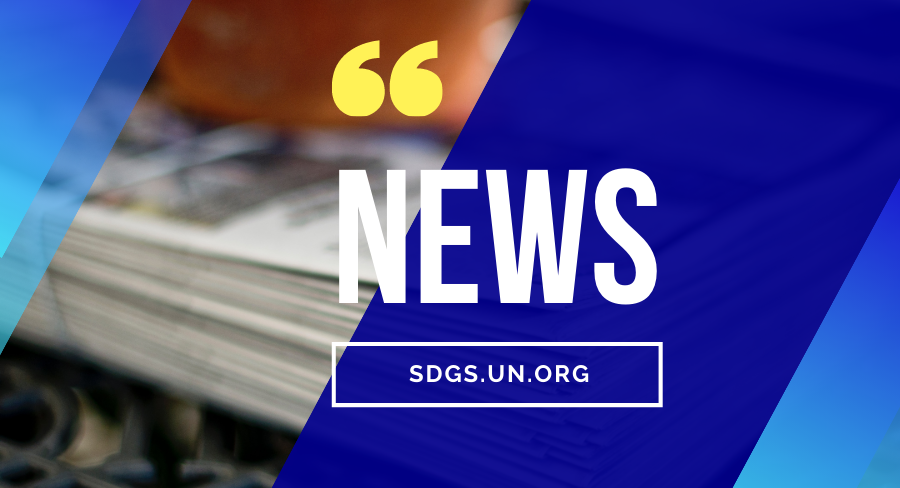News
Friends of Ocean Action Webinar on WTO Fisheries Subsidies Negotiations, 1 July 2021. Closing remarks by Ambassador Peter Thomson, UNSG’s Special Envoy for the Ocean

Excellencies
Ladies and Gentlemen
Greetings one and all, and many thanks to all who’ve spoken before me today. You have laid out clearly for all to hear what is at stake here: ending the economic and environmental madness involved in subsidising industrial fleets to travel far and wide in pursuit of diminishing stocks of fish; spending between 20 and 30 billion dollars of public monies on this folly when those funds could be so much better spent on helping coastal communities build a resilient future through the Sustainable Blue Economy; the moral hazard of subsidised distant-water fishing fleets of developed countries exploiting the marine resources of developing countries, to the detriment of the latter’s domestic fisheries and artisanal fishers; the list goes on.
It has been estimated by many, that ending harmful fisheries subsidies is the single most effective short-term act that can be done to turn around the current decline in the Ocean’s health. Let’s do it. Let’s do it without further delay, for from accelerating levels of Ocean acidification, deoxygenation and warming, to rising sea levels, death of coral reefs, and rampant anthropogenic pollution, the Ocean won’t take much more of this mistreatment without reacting in ways that we have yet to fully understand, but which will clearly not be good for the people of this planet.
We have a universally agreed goal to bring the distortion of harmful fisheries subsidies to an end. In September 2015 the Leaders of all of our countries instituted Sustainable Development Goal 14 to conserve and sustainably use the Ocean’s resources. The sixth target of this goal sets out to prohibit certain forms of fisheries subsidies which contribute to overcapacity, overfishing, illegal, unreported and unregulated fishing. In other words, eliminate harmful fisheries subsidies.
The attainment of this target will come into sharp focus in a year’s time when the World gathers at the UN Ocean Conference in Lisbon. So I say again, let’s do it. No more prevarications or unnecessary complications. Our Leaders have spoken, and the Ocean’s health demands it.
At this critical stage of international negotiations to finalise the text of an agreement, we should all be urging on our respective Member States to do the right thing by the Ocean and to deliver on what was promised by SDG14.6.
I say again that we cannot cherry-pick the Sustainable Development Goals. They are part of a complete package that, along with the Paris Climate Agreement, represents humanity’s blueprint for our survival on this planet. If that sounds over-dramatic to any of you, consider only that the latest WMO annual report says we are still on track for well over 3 degrees Celsius global warming by the end of this century. That is a world on fire.
So, we do not have the luxury of time. In the name of intergenerational justice, we must faithfully implement our blueprint without delay and SDG14 is an essential element of the blueprint.
Excellencies,
Ladies and Gentlemen
The WTO Chair of the Negotiating Group on Rules, Ambassador Santiago Wills of Colombia, has done a great job in getting the draft text on fisheries subsidies to where it is, and I respectfully tip my hat to all he has achieved in the Chair.
To the negotiators, the facilitators and the Secretariat, I say that a hopeful world waits outside the door of your negotiations. We have waited a long time, but we have faith that this is the year you will deliver the required agreement.
Since taking office, the WTO Director-General Dr Ngozi has made many positive pronouncements about the prospects a WTO agreement to end harmful fisheries subsidies this year. I join with others in applauding her resolve and her forthrightness in convening the 15 July meeting of the Trade Negotiations Committee at Ministerial level.
Is there light at the end of this twenty-two-year tunnel? Yes, the light is always there. The question is whether we have the communal wit to make our way into its enlightenment.
The alternative of squabbling in the tunnel’s shadows is a depressing prospect at a time when the Ocean’s health is in such clearly observable decline. Therefore, may 2021 prove to be the year in which we finally brought an end harmful fisheries subsidies. I look forward this year to ticking the box of SDG14.6 as job done, and of celebrating as such with you all at the UN Ocean Conference in Lisbon next year.




